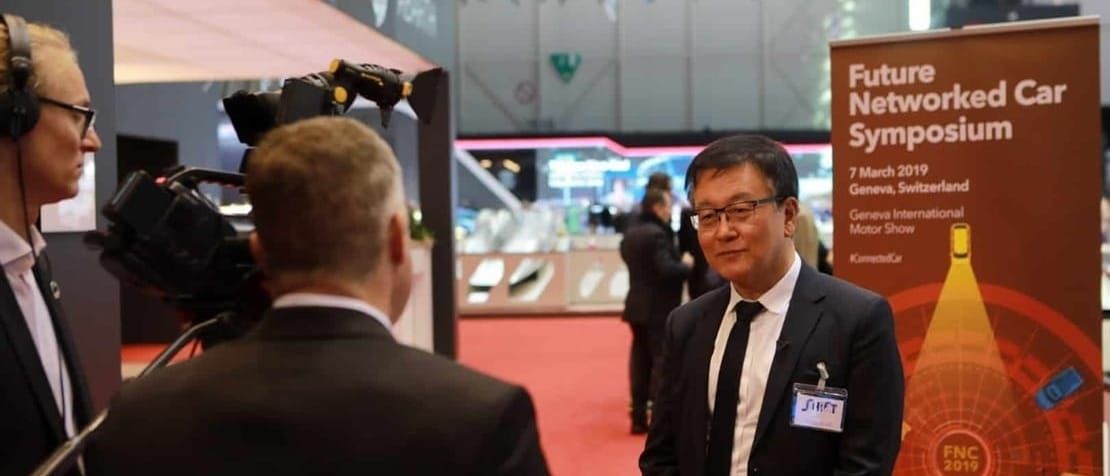
Driving a new era in smart mobility Chaesub Lee
Leaders in the automotive and tech industries met today to discuss how new technologies will change the way we think, live and drive at the Shift Automotive event today at the Geneva International Auto Show. Chaesub Lee, Director of ITU’s Telecommunication Standardization Bureau, kicked off the important discussions. Below is an adapted version of his remarks at the event.
The automotive industry is undergoing extraordinary transformation.
The future of transport looks to be electric, highly automated, and – increasingly – shared.
New technologies are at the heart of this transformation. And, considering the approach of 5G and massive-scale Internet of Things, ITU’s technical standardization work is more relevant to the automotive industry than ever.
That’s why carmakers such as Volkswagen Group, Hyundai – and a diverse range of other automotive industry players such as China’s Telematics Industry Application Alliance, Bosch, Blackberry, Tata Communications and Mitsubishi Electric – have joined ITU in recent years.
By joining the United Nations specialized agency for information and communication technologies (ICTs), these industry players are helping to shape international standards that protect and encourage key investments, improve road safety and help build intelligent transport systems.
The automotive industry is already significantly invested in ITU’s international standardization of 5G systems.
5G is expected to deliver high-precision communications services tailored to the needs of the automotive industry.
Advances in vehicle connectivity and automation have introduced new opportunities to make road transport safer, cleaner and more efficient.
Building trust with international standards
International standards create efficiencies enjoyed by all market players, efficiencies that ultimately result in lower costs to producers and lower prices to consumers.
Standards achieve this by building trust.
Collaboration in standardization builds the mutual trust necessary to large-scale investment.
The ITU standardization platform – for many years central to building trust in the ICT sector – is now helping the ICT sector to build trust with its many new collaborators.
We see this in areas such as energy; healthcare; financial services; and, of course, transport.
ITU addresses intelligent transport in our standardization work for radiocommunications, security, multimedia, and performance and quality of service.
Road safety and cybersecurity are our top priorities.
ITU also receives valuable support from our partnership with the United Nations Economic Commission for Europe, UNECE, the body responsible for global transport regulation.
Working in partnership for more than 10 years, we have built productive dialogue between our respective communities. This dialogue is producing encouraging results, with UNECE now looking to ITU for technical standards in support of vehicle regulations.
Tomorrow, also within the Motor Show, ITU and UNECE will host our annual ‘Symposium on the Future Networked Car’. The symposium is open to all and free of charge. You are all most welcome to attend.
I am also glad to highlight that the future of mobility will be in focus at the 3rd AI for Good Global Summit in Geneva, from 28 to 31 May 2019. The summit focuses on impact. The 2018 summit gave rise to 35 new AI projects to advance sustainable development and the 2019 summit is expected to deliver many more.
The importance of partnerships
The United Nations Sustainable Development Goals emphasize the importance of partnerships. This is a principle that ITU is pleased to support.
We see enormous potential for ICTs to support a revolution in mobility.
But achieving this potential will call for extensive collaboration, at the national, regional and international level.
The future of mobility will be crafted in collaboration by the public and private sectors; the automotive and ICT industries and their respective regulators; and the many new market segments emerging at the intersection of vehicles and ICT.
Open, inclusive standardization processes will help these partners to move forward on a basis of mutual trust.
I invite you all to consider becoming members of ITU and I look forward to discussing how ITU could best assist you in achieving your ambitions for the future of mobility.
